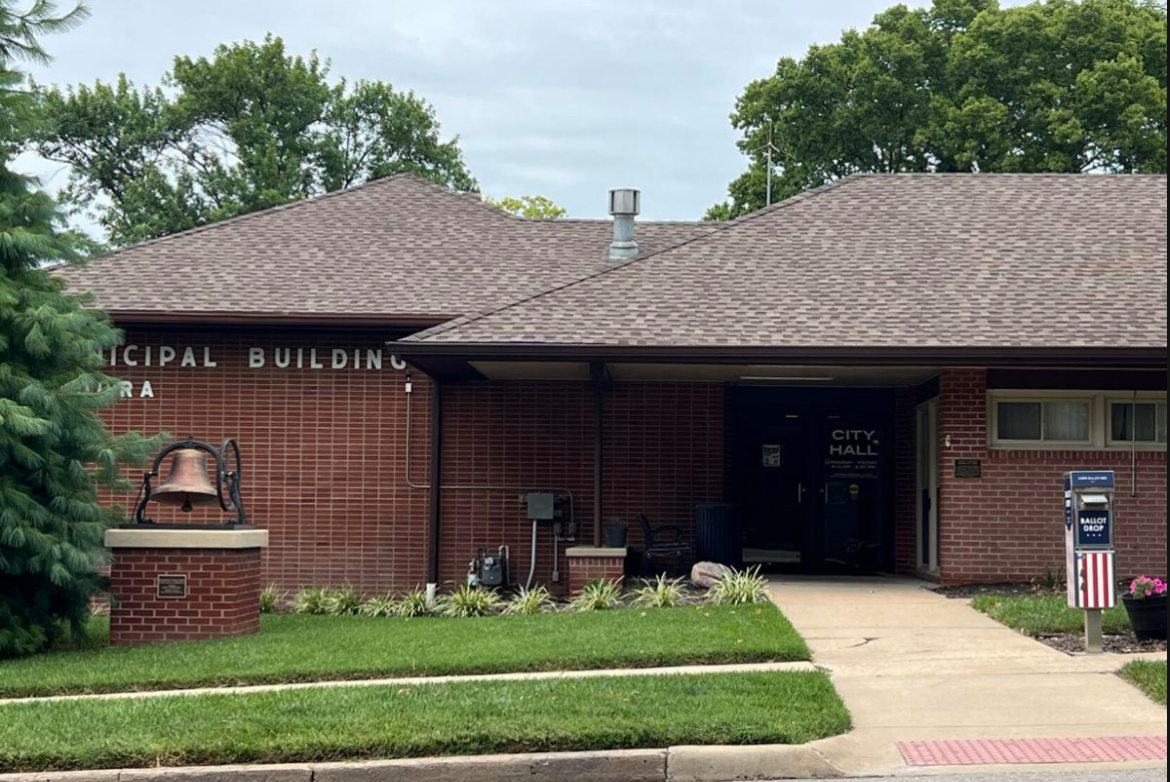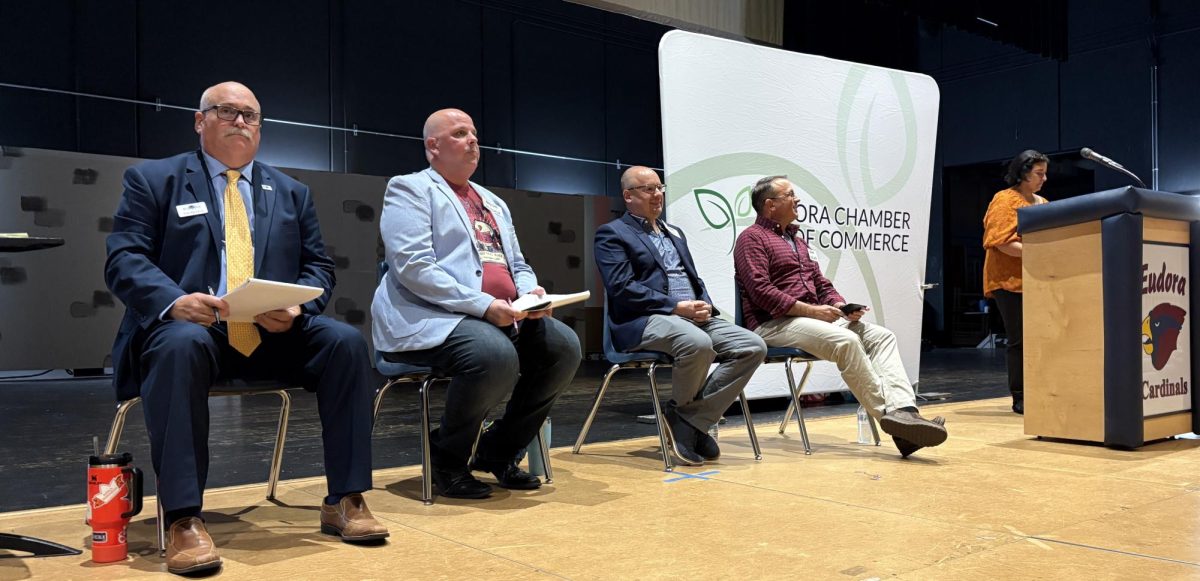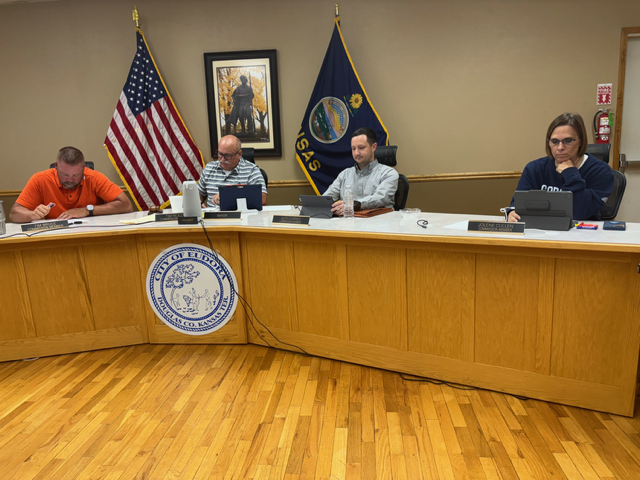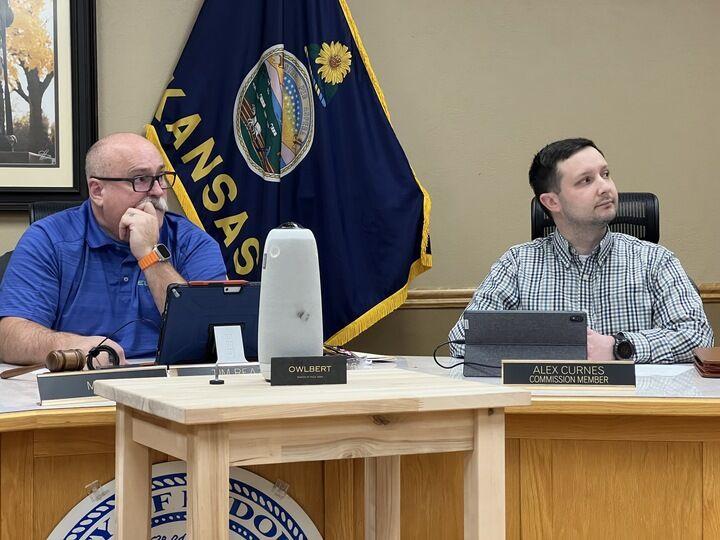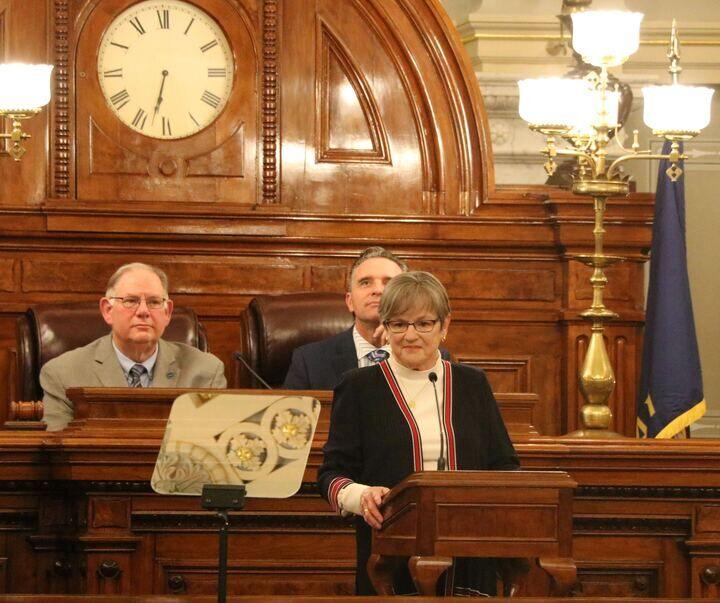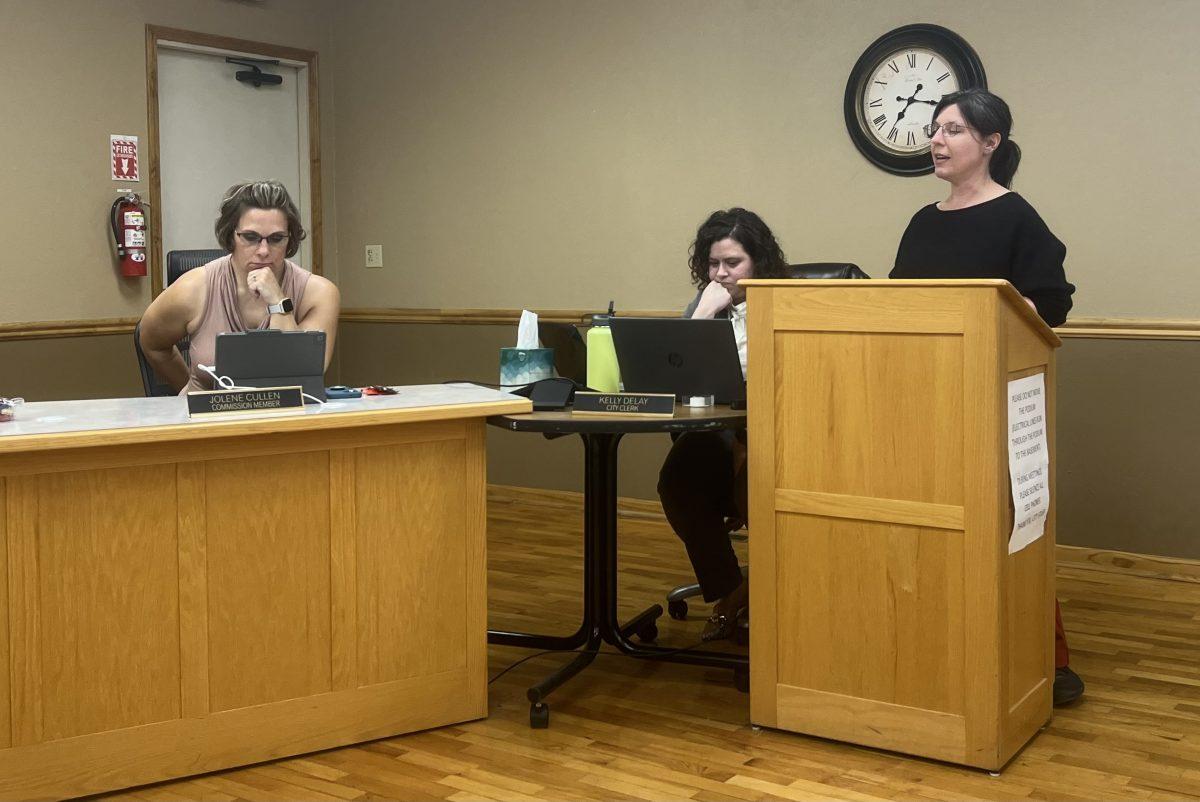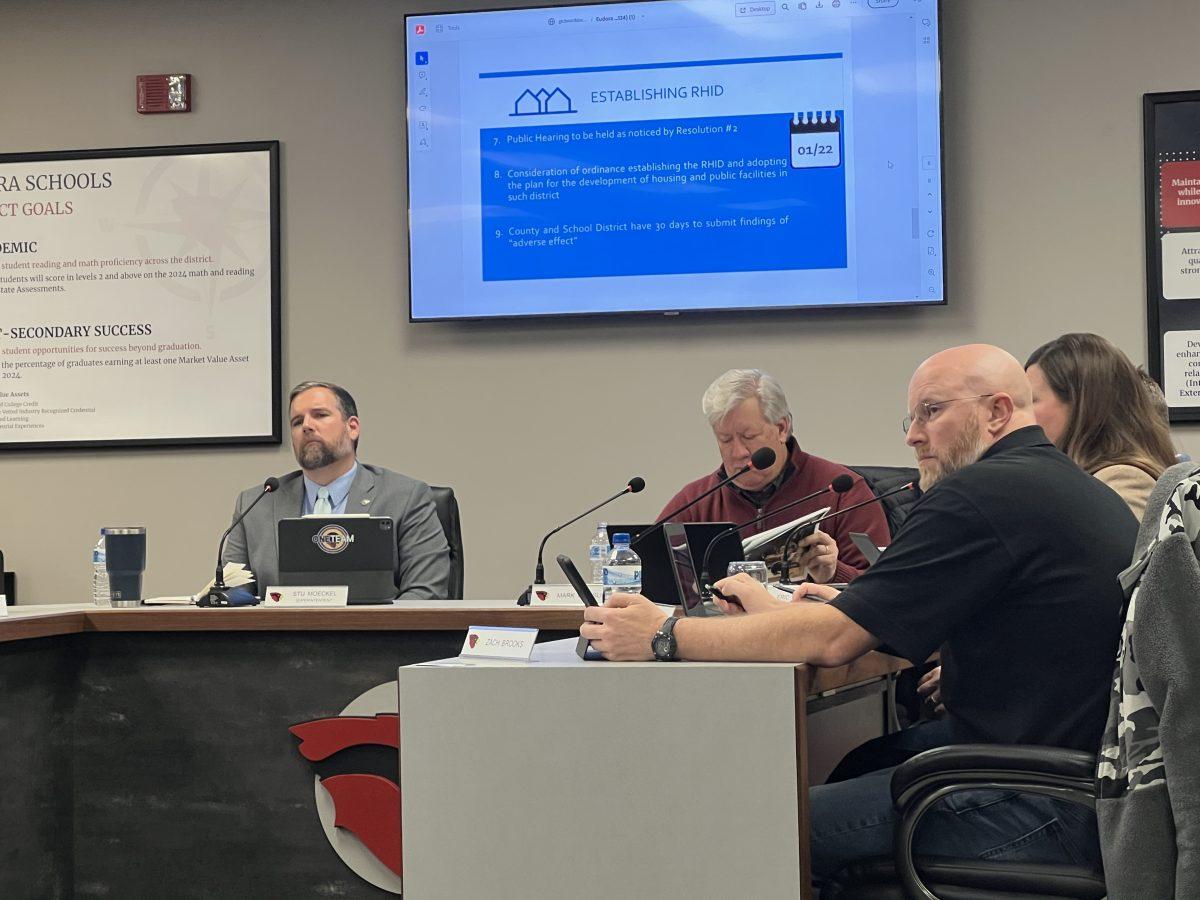Members of the public voiced concerns and questions during a public hearing Monday night about the reinvestment housing incentive district that could be implemented for the new Shadow Ridge North development.
The new development is expected to bring 118 homes to the subdivision near the high school.
Earlier this month, Assistant City Manager Zack Daniel presented the plans for the district to the school district and county commission.
Shadow Ridge resident Ed Jankowksi said it seems like there was no problem filling the lots in the existing neighborhood, so he is not sure there needs to be an incentive for developers.
“We’re hurting the school district because you’re taking their tax away from them, and they’re going to have increased people living in this town with children that are going to go to their school, and they’re going to need that revenue to support that,” Jankowski said.
Mayor Tim Reazin said the project is a long-term investment for the city, and there is desire for townhomes, duplexes and senior housing that will be made possible through this plan. To get retail to come in, they need more housing, which is something developers keep telling the city, he said.
Reazin also noted student funding comes from the number of students and not just property taxes.
Jankowski followed up by asking what assurance the city would have that the developer does not just increase the price of the lots to cover costs, in addition to the public improvement reimbursements.
Reazin said costs of lots have gone up already, just based on cost per acre since the initial Shadow Ridge development was created.
Resident Gary Pratt questioned what precedent establishing this district would create in town. Pratt asked where the city would draw a line, especially if every developer asks for this incentive going forward.
Reazin said the city has already discussed allowing only a limited number of houses to be included in the district, which will include single family, townhomes or senior living opportunities.
Pratt asked if the city had decided how many units would be at each tax increment, but Reazin said that discussion is ongoing.
Superintendent Stu Moeckel also spoke to commissioners and the public, saying he is not trying to sway any votes but just pointing out what he has seen in his three years in the district.
Moeckel said residents have been discussing planning for growth, but the number of houses built in previous years has not been substantial. Moeckel said he regularly hears the need for more houses in town.
“I can tell you as an outsider and truly a Eudora outsider, this is a great place to live and people want to live here, regardless of whether Panasonic is, but they don’t have houses to live in whether they be cost effective or anything,” Moeckel said.
School board member Joe Hurla followed Moeckel and said board members echo a desire to see the community grow. The board has not yet had an in-depth conversation about the project, but Hurla hopes to take back some information to the board.
Hurla said he hopes to receive more information on the tax implications for the school district.
“So while more students is absolutely advantageous and what we want to see, we want to make sure that we’re balancing that,” he said.
Hurla said the amount of taxes being given up for the homes is an important detail that has not been definitively given to the public yet and is something he feels is important to note. He also wanted to know if there would be a cap on the number of houses, rather than a cap on the amount of money coming out of tax rolls.
“I’d like a confirmation that there is a way to throttle down to say that you can only do X number of homes on that, as opposed to this property has been fully approved for an RHID up to X dollars,” he said.
Hurla feels there is a potential benefit to expediting growth but thinks there needs to also be a clear understanding of the implications to the schools, as well.
Reazin said the city hasn’t finished out the development agreement, so those percentages and number of years are not yet finalized.
“I completely agree with every question. We’ve asked all these same questions,” Reazin said. “It hasn’t for me – it doesn’t outweigh the potential opportunities because we’ve seen so many folks that won’t build retail here.”
Commissioner Alex Curnes said it is possible this incentive program is paid off much sooner than the maximum 25 years. He also said this program is a reimbursement system and can only be used for projects that are accomplished.
Once the development plan is ready for consideration by the commission, there will be more details about these specific regulations.
Alcove Developer Roger Johnson said the land costs are four times the price they were when they bought the land for the existing Shadow Ridge neighborhood.
After meeting with the Eudora Senior Foundation, Johnson said they somewhat reoriented their plan to allow for more duplexes, senior housing and residential in their initial phase of the neighborhood. This is part of the reason the development plan is still ongoing.
Johnson also hopes the project will be complete in 10 to 12 years, meaning after that the city will regain those tax dollars.
Belinda Rehmer, a member of the Senior Foundation board, told the commission they receive calls regularly from seniors wanting to move to Eudora, but there is not enough affordable senior housing for them to come to the city.
The city was originally planning to vote on whether to implement the district after going over the details of the development plan and development agreement, but Daniel said talks are still ongoing with Alcove Development. It is expected that those documents will be presented at a February meeting.
Daniel also said, since the City Commission did not take any action at this meeting, the 30-day period to present adverse effects from the reinvestment district will not yet start. He also noted there may be another public hearing when those documents are presented.
In other business, budget analyst Michael Gentry presented the commission with the 2024 downtown grant program applicants.
The program was established in 2011 to meet the goals of the city’s economic development plan. This year’s budget for the program is $15,000, which was passed as part of the 2024 budget.
Applicants are required to match 50% of the grant given by the city, with a maximum $7,500 reward.
The program is based on three objectives: to improve the attractiveness of downtown, to add or expand private business in downtown Eudora, and create partnerships between these businesses and the city. The city received three applications.
Hardeep Gosal of Main Street Wines & Spirits hoped to use funding to help replace his storefront signage, Reazin and Curnes questioned if the application fit into the grant criteria.
Reazin said the grants are usually used to fix permanent exterior needs to enhance the building for current and future tenants. Reazin said adding new signage for the current building does not help future tenants, and is not what the grants have been used for in previous years.
“Whether paint, siding, roof, concrete, stuff like that for out front, so I’m less likely to be in favor of the one for the liquor store. Because it’s not a permanent fixture for that building, it’s based on the person that currently is in it,” Reazin said.
Curnes agreed the project does not seem to enhance the sustainability of downtown.
“I think probably when we’re talking about the siding and trim of a building or if we’re talking about deteriorating wood painted on a building, that seems perhaps a bit more to fall into the category of enhancements, I guess,” Curnes said.
Anthony Brown requested $7,500 to replace siding and trim on the Farm Bureau Insurance building.
John Knipsel requested $3,835 to help with the building across from City Hall at 700 Main St. to repair and replace deteriorating wood, repaint exterior window frames and replace a fence.
The commission made motions to approve the insurance building and 700 Main Street. The liquor store application was not approved.
City Manager Kevyn Gero said the funding is a rolling application, so the money not used on the liquor store can still be given out if other businesses apply.
The commission also read a proclamation and voted to deem January Human Trafficking Awareness month.
Zoe Barlow, the human trafficking coordinator for the Willow Domestic Violence Center, spoke to the commission about the various forms of trafficking, saying it is often misunderstood.
“We’ve seen movies and images that trafficking looks like it has to be someone being kidnapped and physically restrained. Although the scenarios do occur, the majority of what our clients experience are emotional and psychological restraints,” she said.
In 2023, the Willow provided services to 50 survivors of human trafficking with services ranging from safe shelter, court advocacy or case management, she said.







